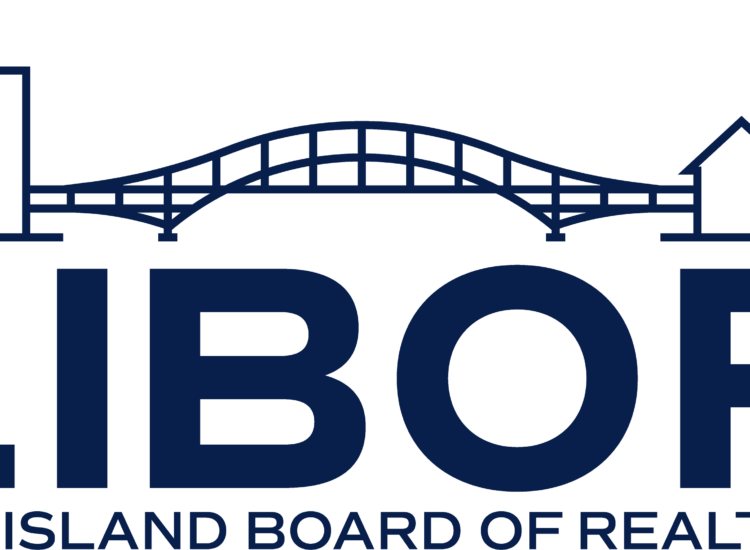Real estate agents are the intermediaries between buyers and sellers, tenants and landlords. They not only facilitate property transactions but also provide invaluable advice on market conditions, pricing, and staging. An agent’s tasks range from conducting market analyses and property appraisals to preparing contracts and negotiating deals on behalf of their clients.
Toc
- 1. Becoming a Licensed Real Estate Agent
- 2. Building Your Real Estate Knowledge
- 3. Developing Essential Real Estate Agent Skills
- 4. Creating a Strong Brand Identity
- 5. Generating Leads and Building a Client Base
- 5.1. Utilizing Social Media and Online Marketing
- 5.2. Email Marketing Campaigns
- 5.3. Collaboration with Local Businesses and Professionals
- 5.4. Offering Exceptional Service to Encourage Referrals
- 5.5. Leveraging your sphere of influence
- 5.6. Networking and attending industry events
- 5.7. Utilizing online lead generation strategies
- 5.8. Implementing traditional marketing techniques
- 6. Providing Exceptional Client Service
- 7. Mastering the Art of Listing and Selling Properties
- 7.1. Effective Pricing Strategies
- 7.2. Professional Marketing Materials
- 7.3. Staging Properties
- 7.4. Utilizing Digital Platforms
- 7.5. Conducting thorough property evaluations
- 7.6. Developing effective pricing strategies
- 7.7. Creating compelling property listings
- 7.8. Hosting successful open houses and showings
- 7.9. Navigating the offer and negotiation process
- 8. Building a Strong Network of Industry Professionals
- 9. Achieving Long-Term Success as a Real Estate Agent
Becoming a Licensed Real Estate Agent

The first step to launching your career in real estate is to become licensed. Licensing requirements vary by state but generally involve completing a certain number of hours of real estate education and passing a licensing exam. It’s crucial to research the specific requirements in your state, including any pre-licensing courses that are necessary. These courses cover essential topics such as property laws, real estate ethics, and the fundamentals of property management and sales. Once you have completed the educational requirements, you will need to pass both the state and national portions of the real estate exam to obtain your license.
After obtaining your license, many states require that you work with a brokerage for the first few years of your career. Choosing the right brokerage is critical; look for one that offers robust training programs, mentorship opportunities, and support tools to help you grow your business. Remember, success in real estate doesn’t happen overnight. It requires dedication, a willingness to learn, and a proactive approach to building your network and reputation in the industry.
Educational requirements
To start your real estate career, you must meet your state’s educational requirements. These typically involve completing a certain number of prelicensing courses and passing a licensing exam. Each state has its own specific curriculum and formulas for calculating the credits earned from completed coursework.
Prelicensing courses
Prelicensing courses are the first step towards obtaining your real estate license. They cover fundamental real estate knowledge including property ownership, land use regulations, and contract law. Some states require a specific number of hours in the classroom or online.
Exam preparation
Thorough exam preparation is vital. Engage with reputable resources to review and practice the concepts and terms you’ve learned in your prelicensing courses. Study materials, practice tests, and real-world application will help you feel confident on exam day.
Passing the licensing exam
The real estate licensing exam consists of both national and state-specific portions. Your preparation should include a review of general principles of real estate law, the specifics of your state’s real estate laws, and familiarity with common real estate terminology.
Choosing a brokerage to work with
Once you’ve passed the exam, you must choose a brokerage firm to affiliate with, as real estate agents are not allowed to practice independently.
National franchises
Consider affiliating with a national franchise for its established branding and support systems. Larger franchises often offer extensive training programs for new agents.
Local brokerages
Local brokerages can provide personalized mentorship and a more hands-on approach. The environment is often more close-knit, which can accelerate your learning and growth.
Independent brokerages
Independent brokerages may afford the most freedom but require you to be more autonomous in building your brand and client base. They can be an excellent fit for experienced agents looking to maximize their independence.
Building Your Real Estate Knowledge

Building a solid foundation of real estate knowledge is crucial for anyone looking to excel in this field. This not only involves staying up to date on the latest market trends and regulatory changes but also deepening your understanding of the various aspects of real estate transactions, financing options, and property management. Regularly attending industry seminars, workshops, and conferences can provide you with valuable insights and networking opportunities. Additionally, subscribing to real estate publications and joining professional associations can be instrumental in your professional development.
Continuous Learning
To remain competitive and effective, continuous learning is key. Real estate is a dynamic industry, with laws, market conditions, and technology constantly evolving. Taking advantage of continuing education courses and certifications not only helps you stay knowledgeable but also demonstrates your commitment to your career to clients and colleagues.
Advanced Certifications
Pursuing advanced certifications in areas such as commercial real estate, luxury home sales, or property management can open new avenues for business and increase your credibility. Many organizations offer specialized training that can enhance your expertise and set you apart in the industry.
Leveraging Technology
In today’s digital age, leveraging technology is non-negotiable for a successful real estate career. From developing a robust online presence with a professional website and active social media profiles to utilizing real estate-specific software for client management and virtual tours, technology can significantly enhance your efficiency and reach.
Tech Tools and Software
Familiarize yourself with the latest software and apps designed to streamline various real estate processes, such as CRM systems, electronic signature platforms, and comparative market analysis tools. Being proficient in these technologies not only improves your productivity but also enhances the buying or selling experience for your clients.
By committing to building and continuously updating your real estate knowledge, you’ll be better equipped to serve your clients effectively and build a successful, sustainable career as a real estate agent.
Understanding local market trends
Local market knowledge is one of the most critical assets for a real estate agent. You should be abreast of the latest industry trends, including property values, inventory levels, and average time on the market for various property types.
Residential properties
In a residential market, consider the needs and wants of the demographic you serve. School districts, local amenities, and neighborhood safety can significantly impact a property’s desirability and price.
Commercial properties
Understand the needs of commercial clients, who may be interested in zoning regulations, accessibility, and future development plans for the area.
Familiarizing yourself with real estate laws and regulations
Compliance is non-negotiable in the real estate world. Ensure you understand real estate laws, including those related to anti-discrimination, brokerage relationships, and real estate practices.
Continuing education and professional development
Stay ahead of legislative changes and industry advancements by engaging in continuing education. Attending seminars, webinars, and conferences can improve your skills and keep you informed of market shifts.
Developing Essential Real Estate Agent Skills

Success in real estate hinges not just on knowledge, but also on developing a set of core skills that enhance client relationships and business success. Effective communication is paramount; whether it’s explaining complex legal terminology to a first-time buyer or negotiating a sale, clear and persuasive communication can distinguish an average agent from a highly successful one. Networking, too, is essential. Building and maintaining relationships with clients, other real estate professionals, and community members can lead to valuable referrals and repeat business. Additionally, adaptability allows agents to thrive in a market that is constantly changing, requiring them to adjust strategies in response to market trends, technological advancements, and client needs. Finally, a strong ethical foundation ensures trust and reliability, key factors that clients consider when choosing an agent. By mastering these skills, real estate agents can significantly enhance their effectiveness and longevity in the industry.
Communication and interpersonal skills
Effective communication with clients, fellow agents, and other industry professionals is critical. Strong interpersonal skills will help you build trust and rapport with your clients.
Negotiation techniques
The ability to negotiate skillfully can often make or break a deal. Learn to balance assertiveness with diplomacy and consider enrolling in specialized negotiation workshops.
Time management and organization
Real estate is deadline-driven. Good time management is crucial for prioritizing clients and deals. Implementing tools like calendars or scheduling software can help keep you on track.
Problem-solving and adaptability
Real estate transactions rarely go as planned. Develop a solution-oriented mindset and be prepared to adjust your approach as circumstances change.
Creating a Strong Brand Identity

In the era of digital marketing, having an effective online strategy is crucial. Utilize social media platforms to showcase your portfolio, share customer testimonials, and provide valuable content related to home buying, selling, and maintaining. An engaging, user-friendly website is also essential, serving as a digital hub for your services and a resource for clients seeking information.
Personalization and Client Experience
Creating a memorable client experience is pivotal. Personalize your interactions and services to meet the unique needs of each client. Whether it’s offering virtual tours for remote buyers or providing personalized guides for first-time homebuyers, going the extra mile can significantly enhance client satisfaction and loyalty.
By strategically building your brand identity and leveraging digital marketing, you can increase your visibility, attract more clients, and ultimately grow your real estate business
Defining your unique value proposition
Identify what sets you apart in the market—whether it’s your knowledge of a particular neighborhood, your commitment to eco-friendly properties, or your multilingual abilities.
Developing a personal brand
Invest in creating a brand that reflects your unique proposition and resonates with your target audience.
Logo and color scheme
Choose a logo and color scheme that are professional and visually appealing. Consistency in branding is key for recognition and memorability.
Professional headshot and bio
A high-quality headshot and a compelling professional bio build trust and convey your personality to potential clients.
Consistent messaging across platforms
Ensure that your brand message is consistent across all platforms—your website, social media, business cards, and any other channel you use to connect with clients.
Building a professional website
Your website is your online storefront. It should be user-friendly, informative, and optimized for search engines to ensure potential clients can find you.
Generating Leads and Building a Client Base

Building a robust client base is the backbone of a successful real estate career. Effective lead generation is a multifaceted approach, combining both traditional methods and modern digital strategies. Networking remains a powerhouse for generating referrals; therefore, cultivating relationships within your community and with past clients is essential. Attend local events, join real estate associations, and participate in community projects to enhance your visibility.
Utilizing Social Media and Online Marketing
Social media platforms are invaluable tools for reaching potential clients. Regularly post engaging content that provides value to your followers, such as market trends, home maintenance tips, and local real estate news. Utilize targeted ads on platforms like Facebook and Instagram to reach specific demographics or geographic areas.
Email Marketing Campaigns
Developing an email marketing strategy can keep you top of mind with potential and past clients. Send out regular newsletters with valuable information, including market updates, newly listed properties, and home buying or selling tips. Personalization and segmentation of your email list can significantly increase engagement rates.
Collaboration with Local Businesses and Professionals
Partnering with local businesses and other professionals can create mutually beneficial referral opportunities. Establish relationships with mortgage brokers, home inspectors, and local contractors to exchange client referrals. Hosting joint events or seminars can also broaden your reach and establish you as a community resource.
Offering Exceptional Service to Encourage Referrals
Above all, providing excellent service to your clients will lead to word-of-mouth referrals, the most potent and cost-effective marketing tool. Satisfied clients are likely to recommend your services to friends and family, expanding your client base organically. Always go the extra mile to exceed client expectations, ensuring a positive experience that they will want to share with others.
By implementing these strategies, you can effectively generate leads and build a sustainable client base that drives your real estate business forward.
Leveraging your sphere of influence
Start by reaching out to your existing network—friends, family, former colleagues, and neighbors. This group constitutes your sphere of influence and can be a valuable source of leads.
Networking and attending industry events
Participate in local business associations, community events, and real estate seminars to expand your network and visibility.
Utilizing online lead generation strategies
The internet offers various tools and platforms to generate leads. Employ strategies such as content marketing, social media outreach, and optimized landing pages to attract potential clients.
Implementing traditional marketing techniques
Direct mail campaigns, open houses, and print advertising are still relevant in the digital age, especially when targeted and executed effectively.
Providing Exceptional Client Service

Exceptional client service in real estate transcends the basic expectations of buying or selling properties—it encompasses a comprehensive, client-focused approach that prioritizes the needs, preferences, and satisfaction of each client. This involves clear communication, reliability, and personalized guidance throughout the entire process. To excel in client service, agents must listen attentively to their clients’ goals and concerns, offer informed advice and solutions, and be proactive in addressing potential obstacles. Additionally, after-sales support, such as assisting clients in settling into their new homes or navigating post-sale paperwork, contributes significantly to a positive client experience. By consistently delivering above and beyond service, real estate professionals can foster lasting relationships, encouraging repeat business and referrals, ultimately leading to sustained success in the industry.
Understanding client needs and preferences
Every client is different. Understand their specific needs, preferences, and motivations to tailor your services and build a relationship based on trust and understanding.
Communicating effectively and regularly
Regular, clear, and timely communication can alleviate stress and build a sense of reliability with your clients.
Going above and beyond to ensure client satisfaction
Satisfied clients are your best advocates. Going the extra mile can lead to repeat business and positive referrals.
Handling challenges and difficult situations
Real estate can be emotional and fraught with challenges. Develop the patience and empathy needed to help clients through difficult circumstances.
Mastering the Art of Listing and Selling Properties

Mastering the art of listing and selling properties is a crucial skill for any real estate professional aiming for success. The process begins with a thorough understanding of the market, including pricing strategies that align with current trends and buyer expectations. High-quality, professional photographs and compelling property descriptions play a vital role in capturing the interest of potential buyers. Implementing staging techniques to showcase properties in their best light can significantly impact buyer perceptions and the sale price.
Effective Pricing Strategies
Establishing the right price from the start is key to attracting serious buyers. Conducting a comprehensive market analysis helps in setting a competitive price that reflects the property’s value and the current market conditions.
Professional Marketing Materials
Investing in professional photography and well-crafted property descriptions can make a significant difference. These materials should highlight the unique features and selling points of the property to entice potential buyers.
Staging Properties
Staging a property can transform spaces, making them more appealing to buyers by showing the potential of the home. Whether it’s decluttering, rearranging furniture, or adding decorative elements, staging plays a critical role in the selling process.
Utilizing Digital Platforms
In today’s digital age, a strong online presence is indispensable. Listing properties on reputable real estate websites, using virtual tours, and leveraging social media platforms can expand your reach and attract a wider audience.
By focusing on these key aspects, real estate professionals can enhance their listings’ appeal, speed up the selling process, and achieve better outcomes for their clients.
Conducting thorough property evaluations
An accurate property evaluation is vital for determining listing prices. Consider factors such as location, condition, and recent sales.
Developing effective pricing strategies
Pricing can determine the speed and success of a sale. Learn strategies to position properties at competitive yet appealing price points.
Creating compelling property listings
Quality photographs, engaging descriptions, and thorough details can make your listings stand out.
Professional photography and videography
Invest in professional photography and, when possible, videography to showcase properties in the best light.
Engaging property descriptions
Develop the art of storytelling in property descriptions. Highlight unique features and the experience of living or working in the space.
Hosting successful open houses and showings
Prepare properties meticulously for showings and open houses. Be ready to convey the property’s value and address any questions or concerns.
Work with your clients to craft offers that are competitive and appealing. Develop negotiation skills to secure the best deal possible.
Building a Strong Network of Industry Professionals

Building a strong network of industry professionals is essential for any real estate agent looking to thrive in the competitive real estate market. A robust professional network provides a wealth of resources, including access to insider knowledge, referrals, and support services that can significantly enhance an agent’s ability to serve clients effectively. Engaging with a diverse range of professionals such as mortgage brokers, home inspectors, lawyers, and fellow real estate agents can offer mutual benefits, fostering opportunities for collaboration and co-marketing efforts.
Establishing relationships with mortgage brokers and lenders
Close collaboration with lenders ensures your clients have access to the best financing options available.
Connecting with home inspectors and appraisers
Reputable inspectors and appraisers can add credibility to your service and provide peace of mind to your clients.
Collaborating with attorneys and title companies
Legal professionals are essential for the completion of a real estate transaction. Cultivate relationships with those who specialize in real estate law.
Partnering with contractors and home stagers
Having a reliable roster of professional contractors and home stagers can enhance the value of the properties you represent.
Achieving Long-Term Success as a Real Estate Agent

Achieving long-term success in the real estate industry involves a commitment to continuous learning, adaptation to market changes, and a focus on client satisfaction. Successful agents understand the importance of staying updated with the latest market trends, regulations, and technological advancements. They invest in their own professional development through seminars, courses, and certifications to enhance their knowledge and skills.
Consistently generating referrals and repeat business
Your reputation for providing exceptional service will result in referrals and repeat business. Nurture these relationships to sustain your success.
Staying up-to-date with industry trends and technologies
Real estate is an evolving industry. Stay informed about market shifts and new technologies that can improve your service offerings.
Prioritizing work-life balance and personal well-being
Real estate can be demanding. While it’s important to work hard to grow your business, it’s also crucial to maintain a healthy work-life balance to avoid burnout.
Setting and achieving professional goals
Set clear, measurable goals for your real estate career. Whether it’s the number of sales per year, a specific market share, or professional designations, having clear targets will help you stay focused and motivated.






